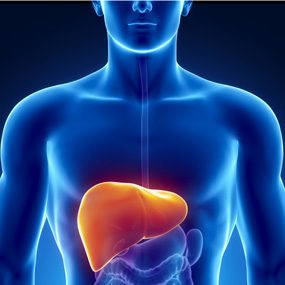
World Hepatitis Day on July 28 raises awareness of the global impact of viral hepatitis and its prevention. The timing couldn’t be better! Just last week, the World Health Organization announced details of an outbreak of Hepatitis E at refugee camps in areas of Nigeria, Niger, and Chad affected by Boko Haram terrorist activities.
What is hepatitis?
Your liver is vital, very complex, and the largest solid organ in your body. It’s on the right side of your belly just below your rib cage. Your liver carries out over 500 functions, but the important ones are:
- Removing toxins from your body
- Making proteins and nutrients for your blood and other vital tissues
- Producing the chemicals necessary to digest food
- Storing carbohydrates for use as energy
Hepatitis is inflammation of the liver. Viruses are the most common cause of hepatitis. Toxic substances (alcohol, certain drugs) and immune disorders can also cause hepatitis. Hepatitis affects millions of people worldwide.
When your liver is inflamed, it can heal completely or develop scars as a result of the inflammation. Even though the liver can regenerate, severe or repeated inflammation can lead to significant scarring of your liver, damaging its ability to perform vital functions. This condition is known as liver cirrhosis and can cause liver failure or cancer. Liver cancer is the top cause of cancer death in Sub-Saharan Africa.

Viral hepatitis
Five primary viruses cause hepatitis. They are Hepatitis A, B, C, D and E viruses. Yellow fever virus and the malaria parasite also affect the liver.
You develop Hepatitis A and E from eating or drinking contaminated food or water. Poor sanitation and hygiene allow the feces of infected persons to contaminate food and water. In fact, Hepatitis E is becoming a common cause of outbreaks in developing countries where clean drinking water and proper sanitation are lacking.
You get hepatitis B, C, and D through contact with infected body fluids such as blood and semen. Typically they pass from person to person through sexual contact, blood transfusions, contaminated hospital equipment and spread from mother to baby during childbirth. Hepatitis B and C cause chronic disease and are the most common causes of liver cancer and cirrhosis.
Alcohol induced hepatitis
Drinking too much alcohol over a prolonged period can damage your liver permanently. Alcohol is the leading cause of cirrhosis and liver cancer in the developed world.
How do you know if you have hepatitis?
Hepatitis may have very mild symptoms that you can easily overlook. Sometimes symptoms can be severe and include:
- Jaundice (yellowing of the skin and eyes)
- Dark urine
- Extreme fatigue
- Nausea and vomiting
- Abdominal pain or discomfort
- Loss of appetite
- Low-grade fever
- Itchy skin
There are safe and effective vaccines to prevent Hepatitis A, B, and E. There is no vaccine against Hepatitis C, but it is the only type of hepatitis for which there is an effective treatment for cure.

Protecting against hepatitis and keeping your liver healthy
Here are some things you can do to prevent hepatitis and maintain a healthy liver:
- Diet – Obesity and eating food with a lot of fat can cause fatty liver disease
- Alcohol – limit yourself to 2 drinks or fewer a day (a drink is one glass of wine or beer or a shot of liquor)
- Vaccination – vaccinate yourself and family against hepatitis A and B
- Exposure to chemicals – if you work with chemicals, always wear a facemask for protection
- Drugs – do not mix drugs or mix drugs with alcohol. Even “herbal” remedies can be toxic
- Personal hygiene – Wash your hands with soap and water or use a hand sanitizer after using the toilet. Teach your children to do the same. Boil drinking water if you’re unsure if it’s clean
- Safe sex – When used correctly, condoms are 99% effective against the spread of infections like hepatitis B and C

